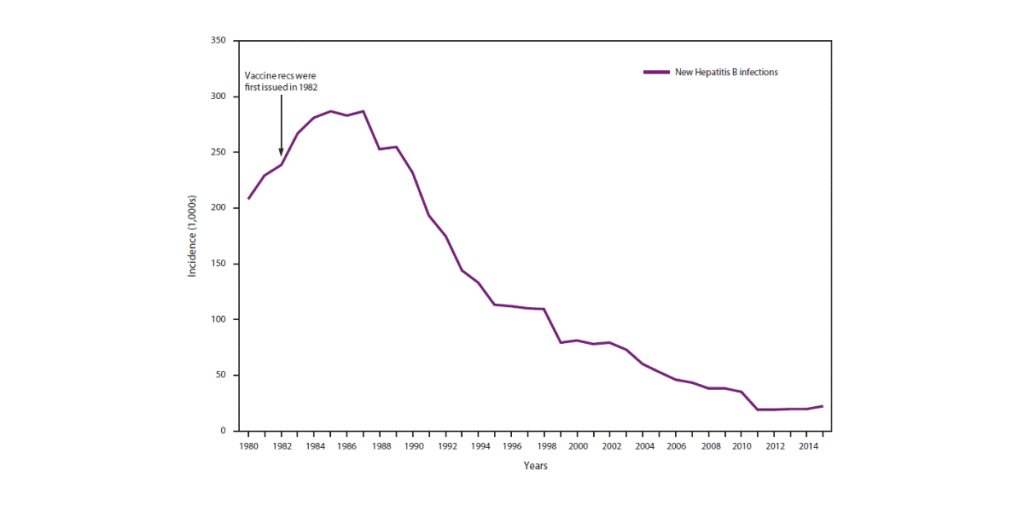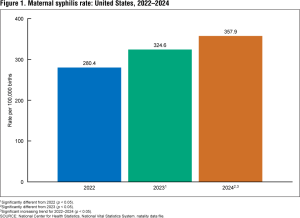The hepatitis B vaccine has been in the news recently with some people questioning why we vaccinate newborns for a sexually transmitted infection (STI) and others suggesting that we should postpone this vaccine until adolescence. Hepatitis B—sometimes called hep B—is a viral infection of the liver. While it is an STI, it can be transmitted in many other ways and can be very dangerous, especially for babies and young children.
Experts say that vaccinating newborns against hepatitis B is one of the most important things we do to protect infants.
Hepatitis B is Not Just Spread Through Sex
Hepatitis B virus is passed through contact with infected body fluids such as blood, semen, and vaginal secretions. It can be transmitted through oral, anal, and vaginal sex. It can also be transmitted during injection drug use if people share needles or other equipment.
Most babies who get hepatitis B get it from their mothers during birth. It is recommended that pregnant women get tested for hepatitis B before they give birth, but some women don’t have access to the prenatal care they need and may never not be screened during pregnancy.
The virus is transmitted in other ways as well. Hepatitis B is considered highly contagious because the virus can live outside the body—on surfaces in our homes, schools, and public places—for up to seven days. It is still infectious during that time.
This means that the virus can be transmitted from a family member to a child at home through items like toothbrushes, razors, and nail clippers. It also means that children can transmit the virus to each other through biting (which is common in day care settings), playground accidents, or contact with blood during sports. The blood does not have to be visible to be infectious.
Vaccinating all newborns for hepatitis B within 24 hours of birth protects them from contracting the virus during delivery and as they grow.
Hepatitis B is Dangerous in Young Children
Initial or acute infection with hepatitis B may be mild and have few, if any, symptoms. Many people who get an acute infection clear the virus on their own without treatment. Once a person has cleared the virus, they can’t be infected with hepatitis B again.
Other people who contract hepatitis B don’t clear it and develop a chronic infection, which can last for their entire lives. Over the course of a lifetime chronic infection can lead to liver damage, liver failure, liver cancer, or even death.
Hepatitis B is especially dangerous for babies and young children. Babies who are infected with hepatitis B at birth or during the first year of their lives have a 90% chance of developing a chronic infection. Young children who are infected between ages one and five have about a 30% percent chance of developing a chronic infection. One quarter (25%) of babies and young children who develop a chronic infection will die from the disease.
The Hepatitis B Vaccine is Safe and Effective
Since 1982, over a billion doses of hepatitis B vaccines have been given to people worldwide, and it has proven to be safe. The most common side effects are mild and include headaches, fever, or soreness at the injection site.
The vaccine also works. It protects 98% of healthy babies who are get it. This protection can last for 20 years or even their whole lives. The CDC began recommending vaccinating all newborns in 1991. Between 1990 and 2019, acute infections among children and teens dropped by 99%.









